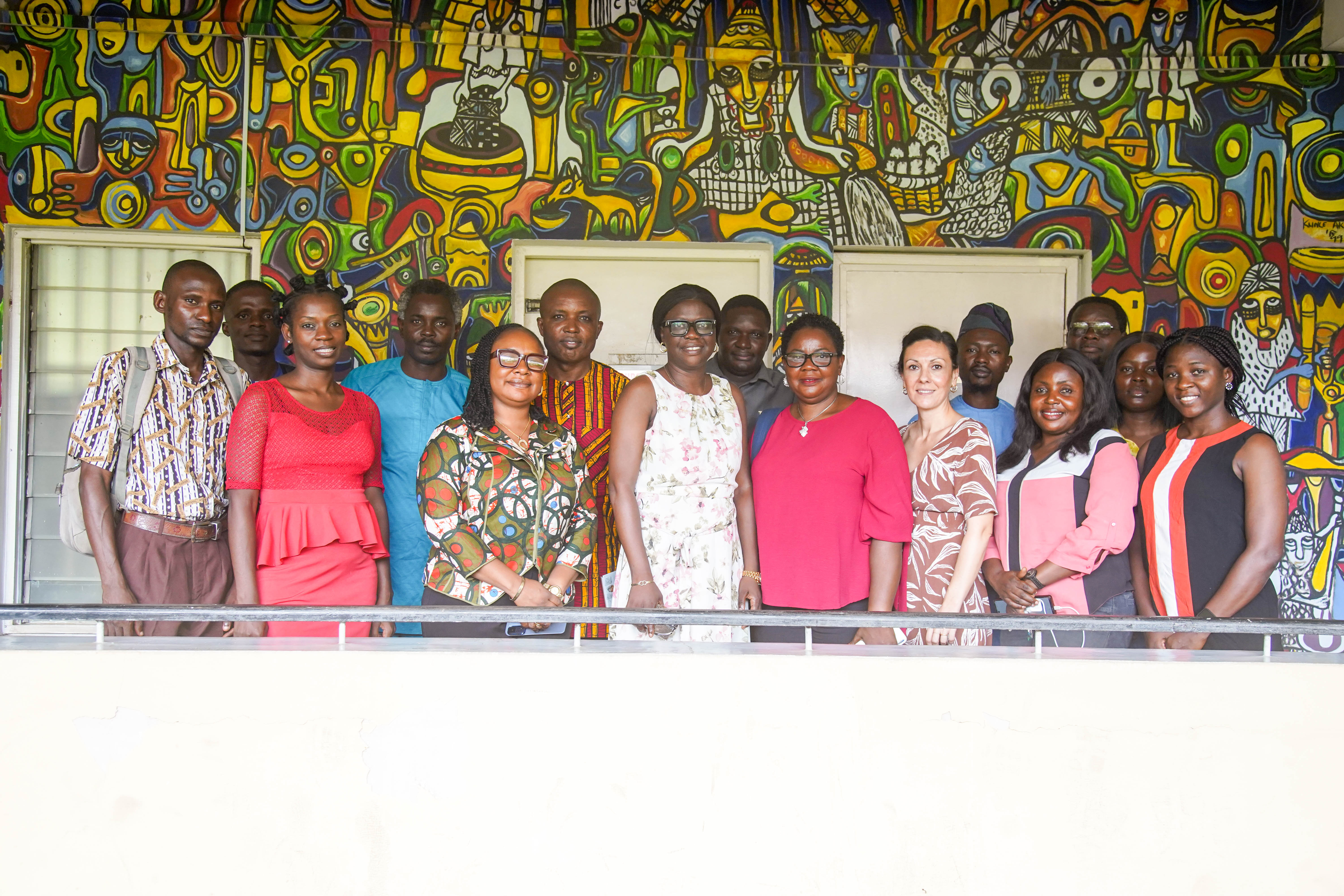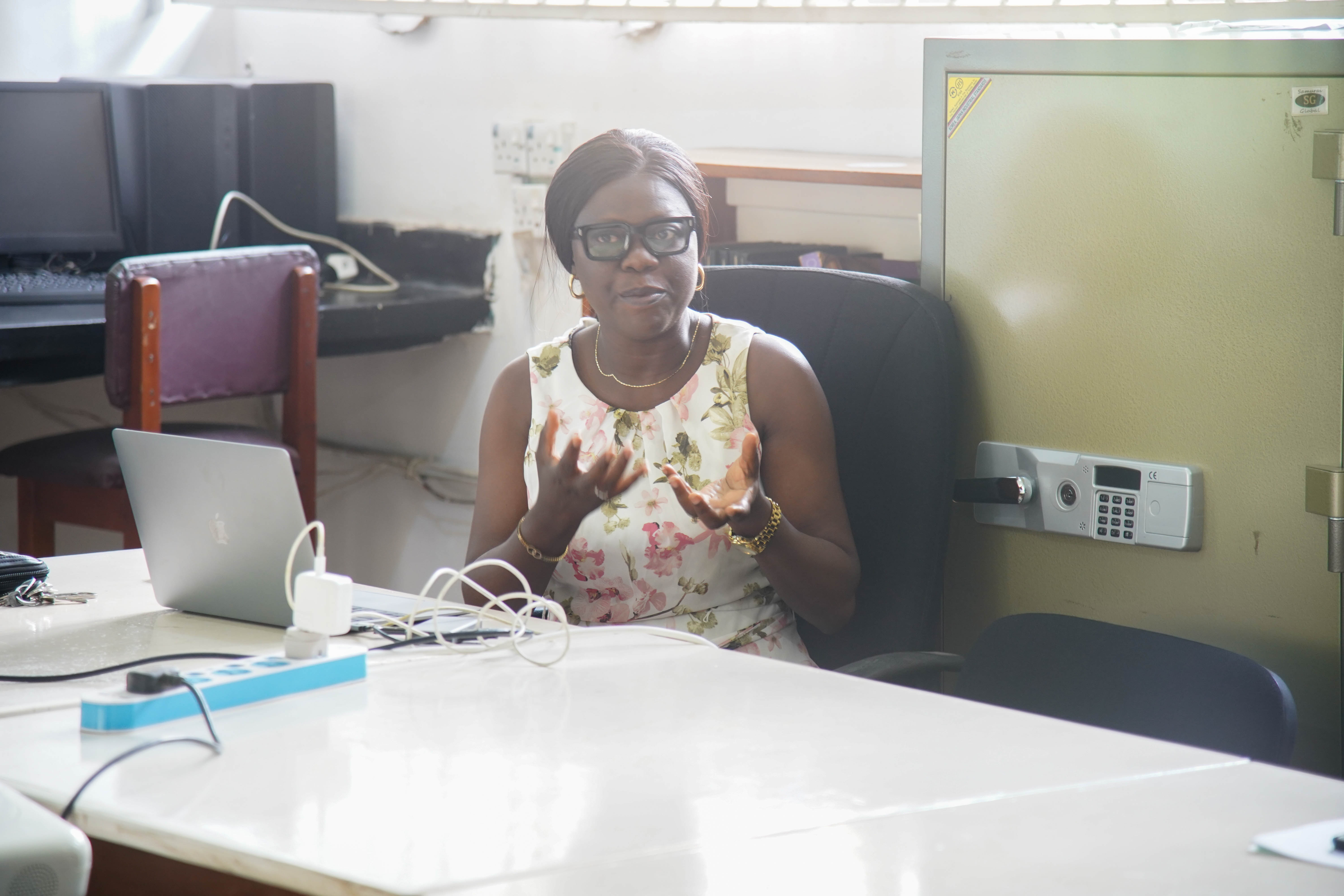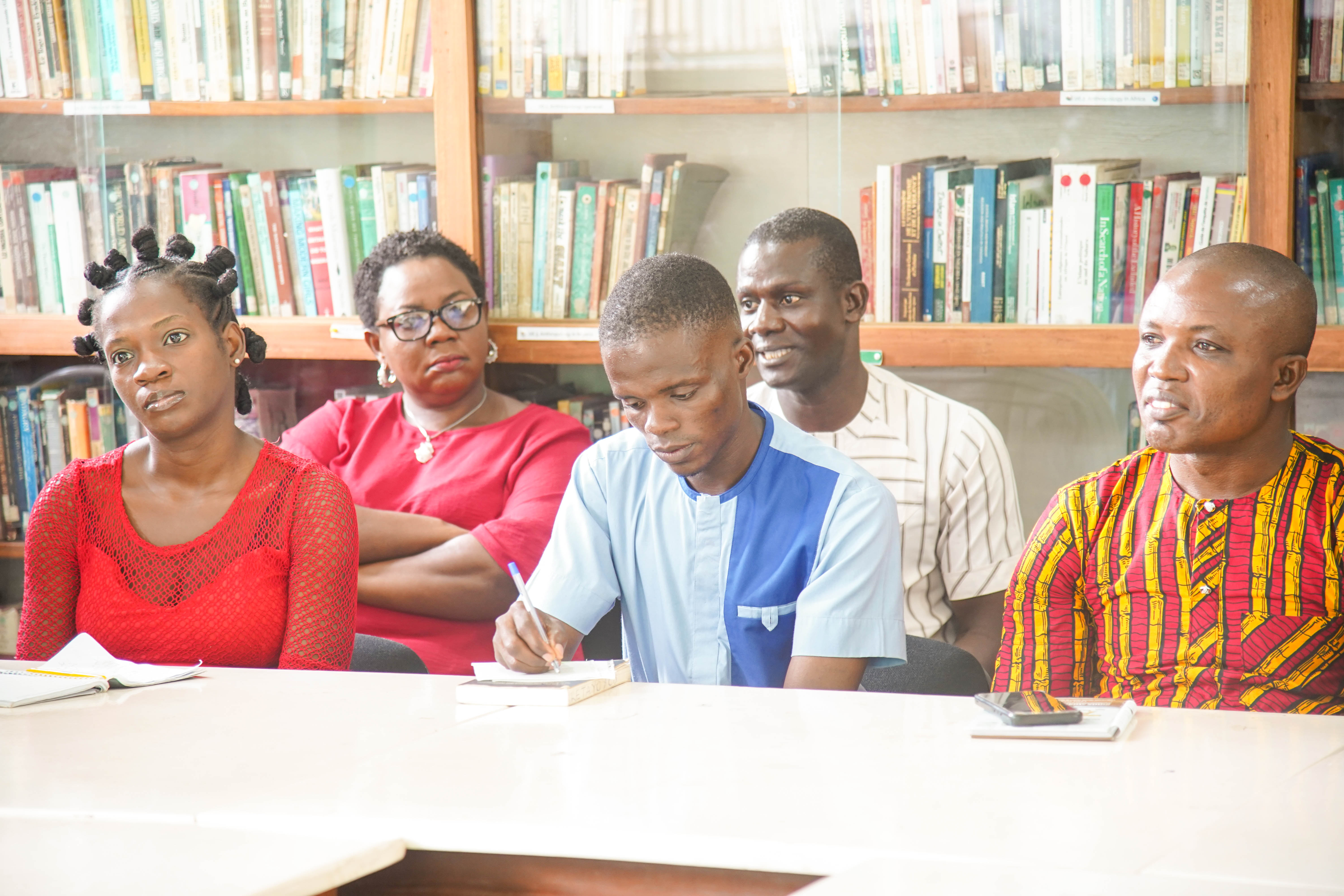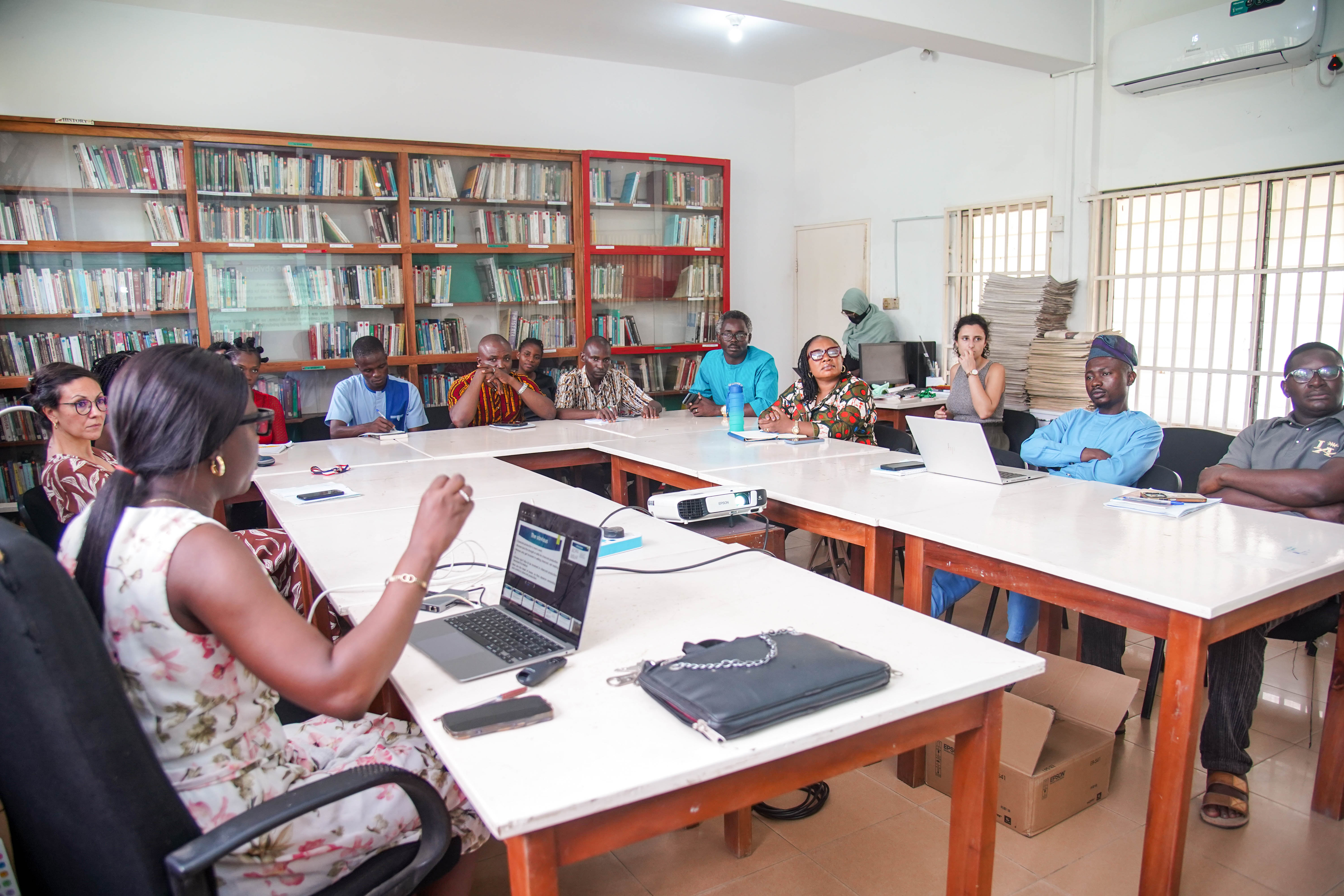Methodological Seminar - Gender in Charcoal Production - Abiola Ayodokun
 We had the pleasure to welcome Dr Abiola Ayodokun for a Methodological Seminar on 8 April, on the theme "Ethnography of gender in charcoal production". Dr Ayodokun presented the work she carried out for her PhD presentation, and the challenges she had to face to be accepted in the traditional communities she studied. She described how she needed to account for cultural sensitivities, religion and the use of working with a research assistant who could open doors.
We had the pleasure to welcome Dr Abiola Ayodokun for a Methodological Seminar on 8 April, on the theme "Ethnography of gender in charcoal production". Dr Ayodokun presented the work she carried out for her PhD presentation, and the challenges she had to face to be accepted in the traditional communities she studied. She described how she needed to account for cultural sensitivities, religion and the use of working with a research assistant who could open doors.
This Seminar was a very interactive one, with fellow researchers and students sharing their questions, experiences and opinions on the topic of positionality and how to adapt to different cultural norms. You can scroll to read a full summary of Dr Ayodokun's presentation.
Dr Delphine Manetta, IFRA-Nigeria deputy director, started the session by presenting Dr Ayodokun, her work at Nigeria Watch, the co-publication of several papers and the topic of this seminar : her PhD work on gender in charcoal production in the town of Saki in Oyo State, Nigeria.
After her introduction, Dr Ayodokun explained how she came to work on charcoal production, and specifically her desire to study accepted narratives on the subject. At the heart of her research were the question "why the obvious?" and "Is charcoal production a male or female activity?". Before answering those questions, she opened the floor to all participants, to hear their views on the trade. The same presuppositions come up, that charcoal is a labour intensive and physically demanding trade, and therefore reserved to men. Building on those assumptions, she raised the contrast between them and reality. Those are, as she explained, narratives, which like all others are constantly evolving.

Next, she delved deeper into her methodology, explaining that she used an ethnographic approach to better apprehend the trade. This involved spending time on the field, with the people practicing the trade, and as a result she faced some barriers to entry. First, she mentioned the impact of Yoruba socio-cultural norms in the town, which she had to comply with. This meant for example kneeling down to greet men, and prostrating for women. Similarly, it was important to conduct all conversations in Yoruba.
Moreover, the population being largely Muslim meant respecting a certain form of dress, and being able to conduct the work accommodating the times for prayer and religious holidays.
Illustrating her point with photographs of her fieldwork, she pointed out that as a woman this involved dressing in a traditional and modest way, and keeping physical distance with the men.
Finally, she pointed out the necessity of key people in the town who opened doors for her, as well as the work with her research assistant, who, with his knowledge of the traditional culture, facilitated contact. Being a woman also impacted her fieldwork experience, and she found that even though she was the researcher, she first needed to be introduced by her research assistant and husband to be acknowledged.

The goal of her study was to look out the implications of gender in the charcoal production, and to do so she organized all female and all male groups, and asked them the same questions, to observe their different perceptions on the topic. However, she faced difficulties when trying to bring together a mixed-group, and she noted here again the use of facilitators knowledgeable in the local practices.
Finally, she concluded with some lessons learnt. First, she highlighted the importance of conforming to cultural norms to be accepted, and in relation the importance of understanding the socio-cultural environment which we enter. Finally, reflecting on your own positionality in the environment, how you are perceived and how that can open or close doors for you is also key to a successful research.
The talk was followed by a Q&A session which touched on questions of language, methodology, the reason why women enter the business, and if their gender hinders or facilitates their success in selling charcoal.


Social Media
Mailing List